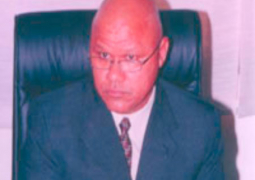The Network on Gender-Based Violence yesterday organised a three-day training follow-up for law enforcers, social workers and health personnel on gender-based violence at the Paradise Suites Hotel in Kololi.
Speaking at the opening ceremony, the chairperson of the network, Babucarr Ngum, said the network was formed in The Gambia in 2009.
The formation of the network took place after they had realised there was need to have such a gender-based organ against violence in the country, even though there were several NGOs and government departments involved in the fight against violence against women and girls.
"It was also felt that with better coordination and communication by the key stakeholders and service providers not only do we improve services, but also ensure that gender-based violence is nipped in the bud with greater impact and effectiveness," Mr Ngum said.
The training aims at looking at the issue from a more professional and technical perspective where they intend to bring to the fore the issue of partnership and communication between the key players.
"It must be recognised that in any case of rape, wife bartering, or child sexual abuse among others, the role of the police, health and social workers are extremely. What is even more crucial is the fact that these various service providers need to communicate and share information if they are to handle the matter more professionally. We have come to realise that our police stations, courts, and health facilities need to partner in the fight against violence against women, which from media reports continues to increase in The
Ngum thanked and appreciated their partners from
Deputising the coordinator of the network, the secretary and member of the network, Madam Matilda Johnson said: "The law enforcers, social workers and health personnel are very essential and very critical in ensuring that peace and stability reigns in society."
She added: "They are also the foremost sector responsible for up-keeping and upholding the safety and wellbeing of our society. Gender-based violence has become the cancer in the society and thus has proved very difficult to address, or confront, simply because it concerns our customs, traditional, and way of life which is personal to the individual, and involves the family and sometimes, the community at large. It touches on our very being, our norms, values, morals but also embraces our fears, anxieties and weaknesses."
She said the training is a follow-up training aimed at examining all the issues from both a professional and technical perspective and to reiterate the issue of the need for partnership and communication between all stakeholders.
She thanked the Finnish partners for their continued support and appealed to them for more contribution and support.
Their efforts will not go in vain, she said, adding that sometime in the new future, girls and women will enjoy equal opportunities and rights in the world over.
For his part, the director of National Aids Secretary (NAS), Alieu Jammeh, in his speech, said: "The importance of examining the connections among gender equity, various types of gender-based violence, and HIV/AIDS is apparent within the context of achieving the Millennium Development Goals (MDGs), and especially with regard to the MDG3, the promotion of gender equity and women’s empowerment."


